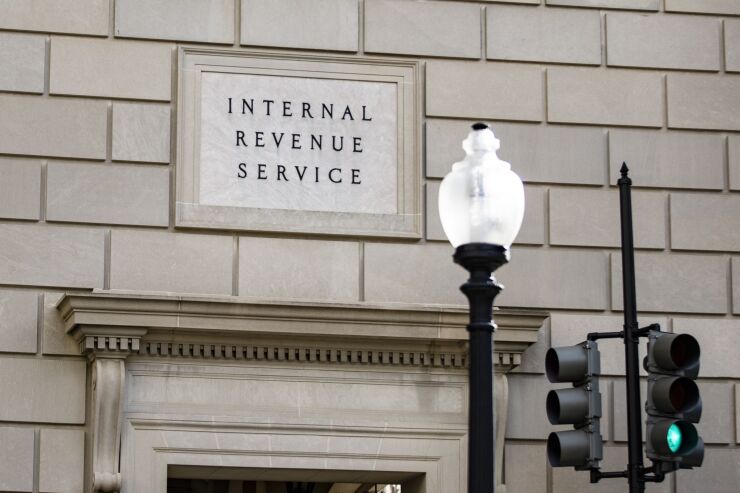A provision in the Tax Cuts and Jobs Act of 2017 that was supposed to raise hundreds of billions of dollars in taxes on deferred earnings from multinational companies and their shareholders is only bringing in about one-third of the projected revenue so far.
A
Before passage of the TCJA, taxpayers could defer their U.S. taxes on certain foreign sourced net income by keeping the assets in a foreign jurisdiction. Section 965 removed that option and required taxpayers to pay this new tax on their previously untaxed post-1986 earnings and profits. Actually collecting and accounting for that deferred tax revenue has proven to be another matter, TIGTA found.
"According to the IRS, multiple issues, including complex payment deferral procedures, have limited the agency's ability to compile accurate Section 965 data," said the report.

The IRS's Large Business and International Division, which is responsible for ensuring that taxpayers comply with the Section 965 tax, undertook three compliance campaigns to address individual and business taxpayer compliance. Two of the ongoing campaigns have prompted taxpayers to file amended returns reporting the tax and significant changes to the Section 965 tax calculation. However, TIGTA said it's concerned that the campaign focused on the compliance of individuals and the IRS doesn't plan on doing any follow-up actions with the taxpayers who didn't respond to the letters from the IRS.
The report pointed to other problems as well. Some of the installment payments on the repatriation tax were applied by the IRS to incorrect tax periods, which could lead to a taxpayer being identified as not compliant. On top of that, numerous payments were miscoded as Section 965 payments, impacting the IRS's ability to determine Section 965 revenue. The IRS doesn't seem to have the ability to systematically identify taxpayers who don't comply with the required installment payments or S corporation shareholders who failed to annually report their deferred liability on the Form 965-A, Individual Report of Net 965 Tax Liability.
TIGTA recommended that the IRS prioritize and follow up with compliance actions on nonresponsive taxpayers who received the so-called "soft letters" from the IRS advising them of their tax obligations. The IRS should also revise the notices to add more information on how the Section 965 installment payments should be made, the report suggested, and ensure that system changes identify Section 965 payments that were potentially processed incorrectly. TIGTA also recommended the IRS develop procedures to systematically identify taxpayers that don't comply with the Section 965(h) tax deferral requirements and develop procedures to identify S corporation shareholders who made an election under Section 965(i) and who didn't submit the Form 965-A every year or didn't report the correct amount of the Section 965 deferral on their Form 965-A. The IRS agreed or partially agreed with four of the five recommendations, but had objections to one of them that were redacted from the public version of the report.
The IRS pointed to resource constraints and the ability of taxpayers to defer payments over eight years as reasons why the amount of revenue collected has come up short so far.
"Notwithstanding these challenges, the IRS developed, and continues to refine and enhance, a multipronged and comprehensive strategy for addressing implementation and compliance with the Section 965 Repatriation Tax, resulting in billions of proposed adjustments to taxpayers' positions and improved taxpayer compliance," wrote Nikole Flax, commissioner of the IRS's Large Business and International Division, in response to the report. "We made, and continue to make, significant changes to our information technology systems and processing. To enhance taxpayer experience, we created formal and informal guidance; updated or corrected tax forms, instructions and educational materials; delivered training to our workforce; and engaged in stakeholder outreach."




